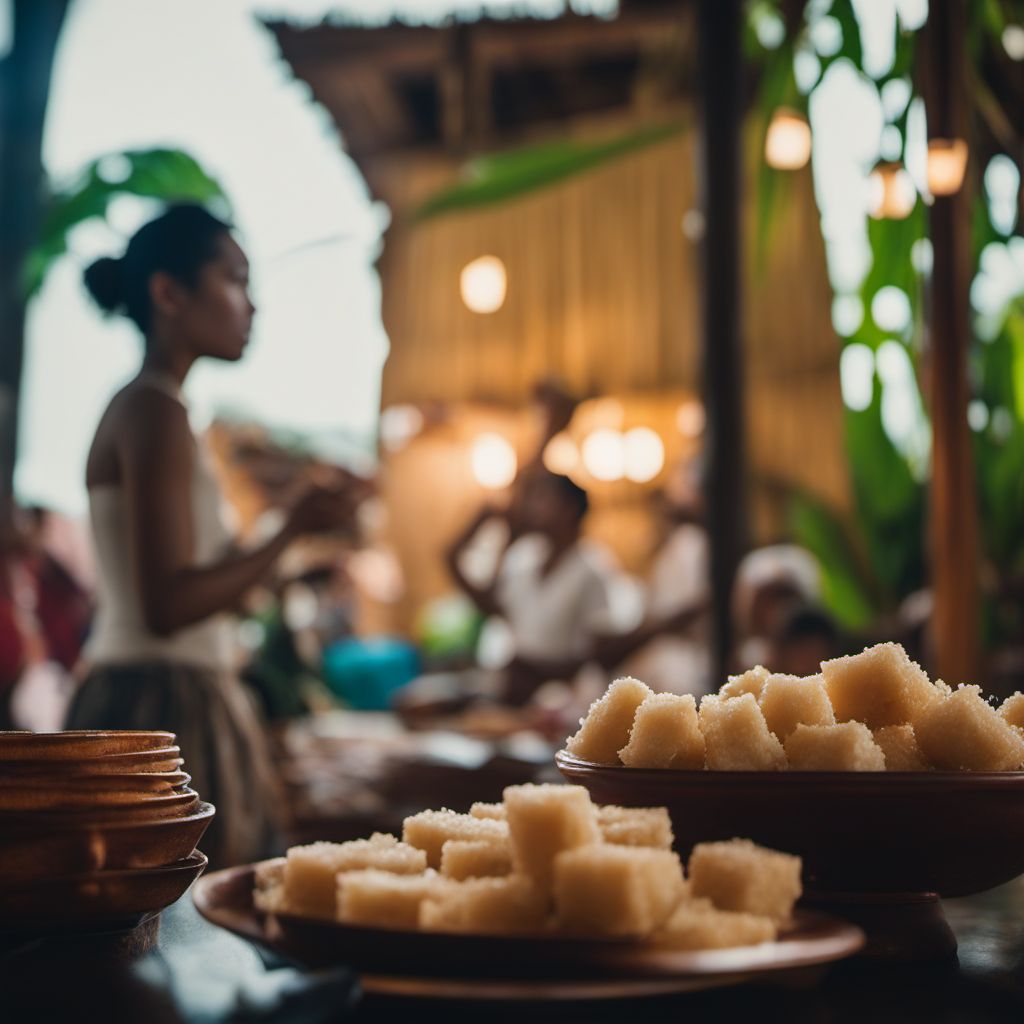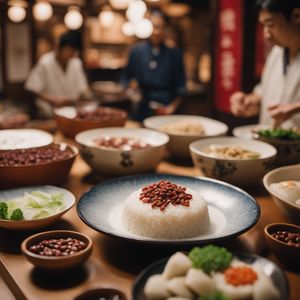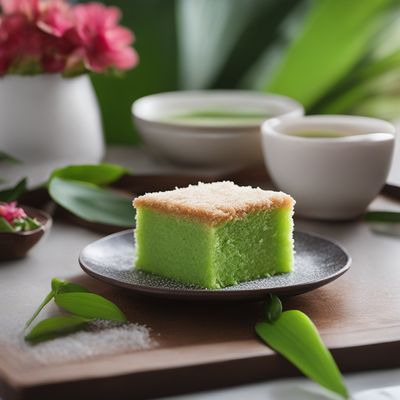
Dish
Getuk
Getuk is a popular dessert in Indonesia, especially in the island of Java. It is made by grating cassava and mixing it with coconut milk and sugar. The mixture is then steamed until it is cooked through and has a soft, chewy texture. Once it has cooled, it is cut into bite-sized pieces and rolled in grated coconut. Getuk is a simple and delicious dessert that is perfect for any occasion.
Origins and history
Getuk has been a part of Indonesian cuisine for centuries. It is believed to have originated in Java, where it is a popular snack and dessert. Getuk is also known as Klepon in some parts of Indonesia.
Dietary considerations
Getuk is gluten-free and vegan-friendly. However, it is high in calories and should be consumed in moderation. It does not contain any allergens.
Variations
There are many variations of Getuk, depending on the region and the ingredients used. Some recipes call for the addition of pandan leaves or food coloring to give it a green color. Some versions of Getuk are also filled with palm sugar or peanuts for added flavor and texture.
Presentation and garnishing
To make Getuk, it is important to use fresh cassava and grate it finely. It is also important to steam the mixture until it is cooked through but still has a soft, chewy texture. Once cooled, it can be cut into bite-sized pieces and rolled in grated coconut. Some variations of Getuk can be decorated with colorful sprinkles or served with a drizzle of chocolate sauce for a more indulgent treat.
Tips & Tricks
Getuk can be stored in an airtight container in the refrigerator for up to 3 days. To reheat, steam for a few minutes until warm and soft.
Side-dishes
Getuk is usually served as a snack or dessert. It can be accompanied by a cup of hot tea or coffee.
Drink pairings
Getuk is traditionally served with hot tea or coffee. It can also be paired with coconut water or a refreshing fruit juice.
Delicious Getuk recipes
More dishes from this category... Browse all »

Aamras
Indian cuisine

Aasmi
Indian cuisine

Agra petha
Indian cuisine

Aiyùbīng
Taiwanese cuisine

Ajdnek
Slovenian cuisine

Akafuku
Japanese cuisine

Akanés
Greek cuisine

Akumaki
Japanese cuisine


